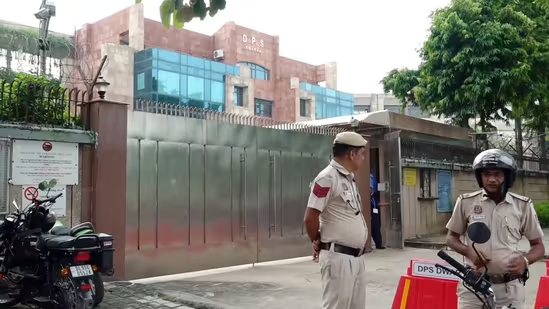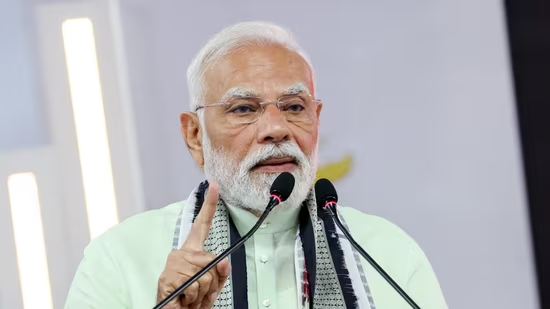 FEATURE: In the maze of Indian bureaucracy, where administrative roles often blur into a landscape of routine governance, Pramod Kumar Mishra emerges as a rare and compelling figure—a bureaucratic architect who has quietly but profoundly shaped modern India’s administrative landscape. His journey is not merely a chronicle of professional achievements, but a nuanced narrative of strategic vision, intellectual depth, and transformative leadership.
FEATURE: In the maze of Indian bureaucracy, where administrative roles often blur into a landscape of routine governance, Pramod Kumar Mishra emerges as a rare and compelling figure—a bureaucratic architect who has quietly but profoundly shaped modern India’s administrative landscape. His journey is not merely a chronicle of professional achievements, but a nuanced narrative of strategic vision, intellectual depth, and transformative leadership.
PK Mishra represents a unique breed of civil servant—an intellectual with deep academic roots and a pragmatic administrator with an extraordinary ability to translate complex policy frameworks into tangible societal outcomes. His academic journey, marked by exceptional achievements like being the only student from Odisha to secure a first-class in economics across all universities, provides a glimpse into the intellectual rigor that would define his entire career.
His professional trajectory reads like a masterclass in strategic administrative navigation. From his early days as a district magistrate in Gujarat to becoming the Principal Secretary to Prime Minister Narendra Modi, Mishra has consistently demonstrated an uncanny ability to operate at the intersection of policy, administration, and strategic implementation. His work is less about bureaucratic compliance and more about creating systemic transformations. Like a chess grandmaster, he navigates complex administrative landscapes with precision, anticipating moves several steps ahead. Each assignment becomes an opportunity to redesign systemic approaches, transforming traditional bureaucratic roles into dynamic platforms for innovative governance. His strategic insights emerge not from theoretical abstractions, but from deep, ground-level understanding of institutional mechanics and human potential.
The Kutch earthquake of 2001 serves as a profound inflection point in Mishra’s career. While many bureaucrats would have viewed the disaster as a management challenge, he saw it as an opportunity to reimagine disaster response mechanisms. By establishing the Gujarat State Disaster Management Authority (GSDMA), he didn’t just create an administrative body; he pioneered a holistic approach to disaster management that became a national benchmark. This wasn’t merely an administrative achievement but a humanitarian innovation that potentially saved countless lives.
His expertise in agriculture presents another fascinating dimension of his professional persona. As Agriculture Secretary, Mishra wasn’t content with incremental improvements. He architected groundbreaking initiatives like the National Agriculture Development Programme and the National Food Security Mission. These weren’t just schemes but strategic interventions designed to address fundamental agricultural challenges, demonstrating his ability to see beyond immediate administrative mandates. Understanding agriculture as a complex ecosystem rather than a mere economic sector, Mishra approached farmer welfare with a holistic perspective. He viewed agricultural development through a multidimensional lens, connecting technological innovation, financial empowerment, and social infrastructure to create comprehensive transformation strategies that went far beyond traditional policy frameworks.
The United Nations SASAKAWA Award for Disaster Management in 2019 wasn’t just a recognition but a validation of Mishra’s philosophical approach to public service. It signaled that true administrative excellence transcends routine governance—it’s about creating systems that can anticipate, respond, and evolve.
His long-standing association with Narendra Modi, spanning decades, offers fascinating insights into his administrative philosophy. Unlike typical bureaucratic relationships, theirs seems founded on mutual intellectual respect and a shared vision of transformative governance. Mishra isn’t just an implementer of policies but a strategic thought partner who can harmonize complex administrative dynamics.
Colleagues describe him as a “man of few words,” but this understates his profound impact. His silence is not passive but strategic—a calculated approach that allows careful observation, nuanced understanding, and precise intervention. In a world of administrative noise, Mishra’s approach is like a precisely calibrated instrument, measuring and responding with exceptional accuracy.
His international exposure, including research at the Institute of Development Studies and involvement with global institutions like the Asian Development Bank, adds another layer to his administrative toolkit. He isn’t just a domestic administrator but a global thinker who understands complex developmental ecosystems.
What truly sets Mishra apart is his intellectual versatility. His publications spanning disaster management, agricultural risk, and development economics aren’t mere academic exercises but sophisticated explorations of systemic challenges. Each publication represents a deep dive into understanding complex socio-economic mechanisms, reflecting an administrator who is fundamentally a scholar.
The scale of his responsibility as Principal Secretary to the Prime Minister is immense. He manages not just administrative matters but serves as a critical interface between political vision and bureaucratic execution. His role requires an extraordinary balance of technical expertise, political sensibility, and strategic foresight.
Mishra’s journey is a powerful reminder that bureaucracy isn’t about maintaining status quo but about creating transformative possibilities. His career demonstrates that true administrative leadership is an art form—requiring intellectual depth, strategic thinking, and an unwavering commitment to public good.
His approach to human resource management within the Prime Minister’s Office has been particularly noteworthy. He hasn’t just managed appointments; he has introduced innovative approaches that reflect a forward-thinking administrative philosophy. Each appointment, each strategic move reflects a deeper understanding of organizational potential.
Perhaps most remarkably, Mishra represents a generation of civil servants who view their role not as a position of power, but as a profound responsibility to catalyze national transformation. His work spans multiple critical domains—agriculture, disaster management, infrastructure, and policy formulation—revealing an administrator who sees governance as an interconnected, holistic ecosystem.
As India navigates complex developmental challenges in the 21st century, bureaucrats like PK Mishra become increasingly crucial. They are the silent architects who design the scaffolding upon which national progress is built. Their work might not always make headlines, but it fundamentally shapes the trajectory of institutional and societal evolution.
In the grand narrative of India’s administrative leadership, Pramod Kumar Mishra stands not just as a successful bureaucrat, but as a sophisticated intellectual who has reimagined the very notion of public service. His journey is a powerful testament to the potential of thoughtful, strategic, and compassionate governance.
His legacy is not just in the policies implemented or the positions held, but in the fundamental shift he represents—an administrative approach that sees beyond immediate challenges, that understands the delicate interconnections between policy, people, and progress. In PK Mishra, we see not just an administrator, but a visionary who has quietly but profoundly shaped modern India’s administrative and developmental landscape.





